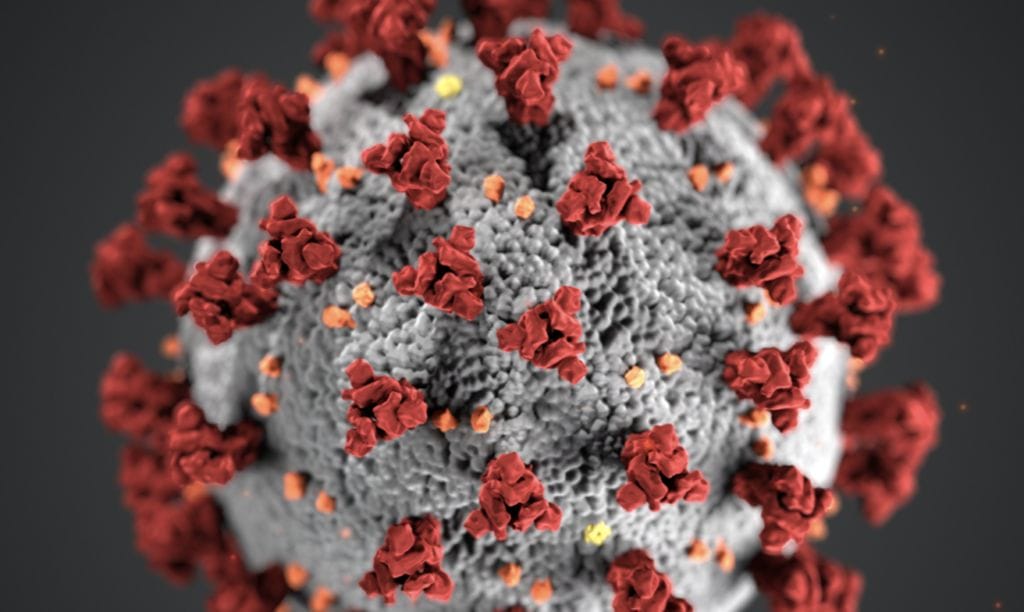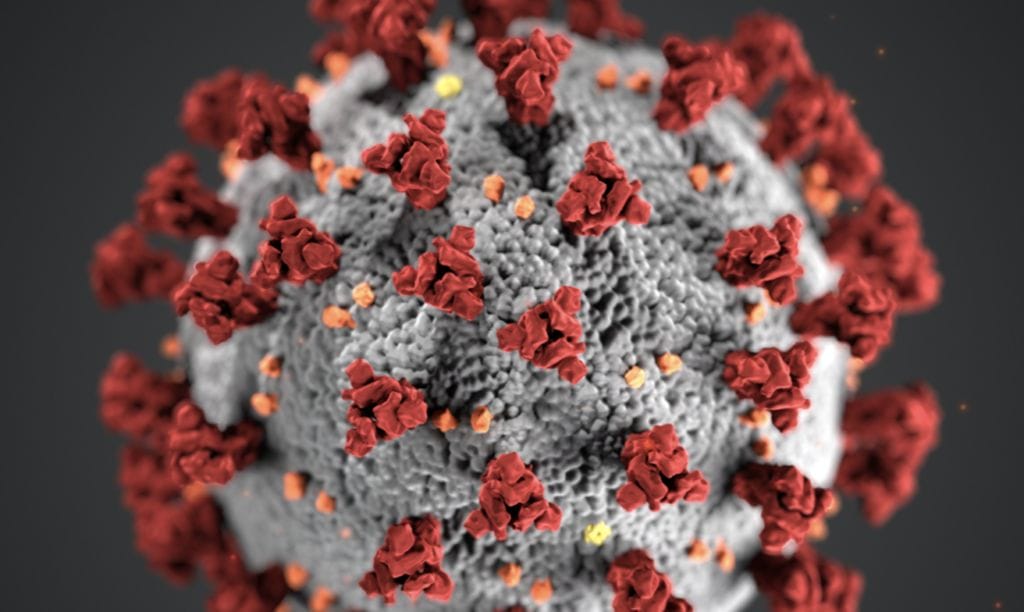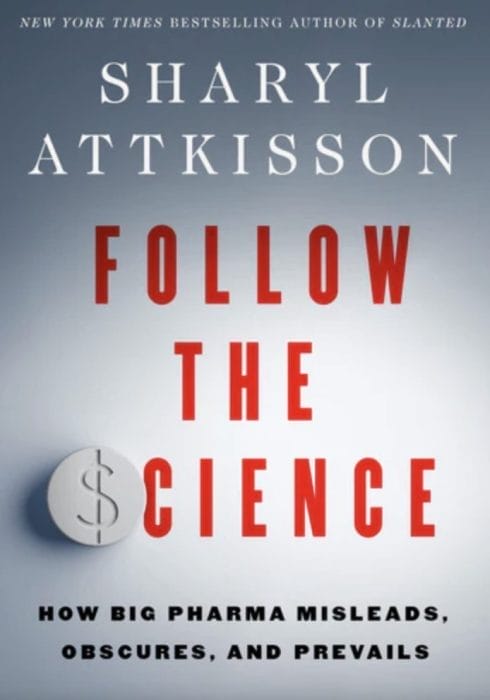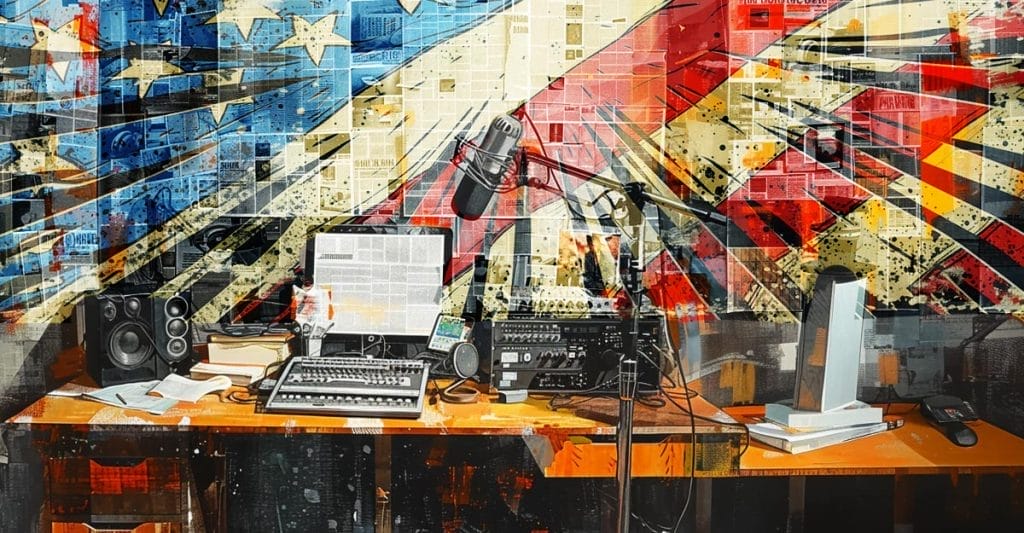
The following is from Full Measure with Sharyl Attkisson. Watch the video by clicking the link at the end of the story.
One of the staunchest defenders of China’s conduct in the coronavirus outbreak is an American microbiologist based in Texas. It turns out he helped develop the staff and practices at the very lab in Wuhan that US officials suspect might have played a role in the early spread of the virus. James Rosen takes a look at this controversial scientist.
James Rosen: As director of the Galveston National Laboratory at the University of Texas, Dr. James Le Duc is one of the nation’s most experienced and respected experts on virus outbreaks.
Kirstin R.W. Matthews, PhD, Science Fellow, Baker Institute for Public Policy: He leads research on infectious disease and often neglected diseases. Prior to coming to Texas, he also worked at the CDC and a stint at the World Health Organization.
Dr. Le Duc: I lived in West Africa for two years in a tent, collecting rats and mice and bats and all the things we now know are reservoirs for all these diseases that we’re concerned about.
James: On January 21st, the day the US announced its first confirmed case of the coronavirus, and one day before China placed Wuhan on lockdown, this distinguished professor of immunology published an op-ed in the Houston Chronicle, praising China for its early handling of the epidemic.
“Fast action and open communications by China,” Le Duc wrote, “is helping the world prepare for another potentially devastating infectious disease outbreak.”
“Importantly,” he added, “they have been transparent in sharing their findings with the world, thus allowing other nations to take precautions.”
In fact, since Dr. Le Duc published those words, western governments have reached precisely the opposite conclusion, that China withheld information at the outset, causing untold additional deaths and far greater economic damage.
Dr. Deborah Birx/White House coronavirus Task Force Coordinator: So, I think the medical community made, interpreted the Chinese data as, that this was serious but smaller than anyone expected, because I think probably, we were missing a significant amount of the data.
James: Only later did it emerge that the laboratory Dr. Le Duc runs, in Galveston, spent much of the last decade as the official American partner of the Wuhan Institute of Virology, the very lab in China that uses bats for the study of infectious diseases, where state department officials warned, two years ago, of unsafe practices, and which has now drawn suspicion as a possible origin point for the coronavirus now ravaging the world.
(video shows press conference)
John Roberts/Fox News: Does that correspond with what you have heard from officials?
Pres. Trump: Well, I don’t want to say that, John. But I will tell you, more and more, we’re hearing the story. And we’ll see.
James: Le Duc’s op-ed for the Houston Chronicle suggests he was eager, early on, to see his colleagues in Wuhan, the epicenter of the outbreak, portrayed as proactive in shutting down the disease, and in sharing information about it, even when that wasn’t the case.
Just 18-months ago, Dr. Le Duc and his counterpart in Wuhan, Dr. Zhiming Yuan, co-authored an essay for Science Magazine, touting their collaborative work on the Wuhan lab’s construction of a maximum bio-containment laboratory.
“We engaged in short and long-term personnel exchanges focused on biosafety training, building operations and maintenance,” the two wrote, adding that they also worked on “collaborative scientific investigations in biocontainment.”
The Galveston lab also publicized its training of Dr. Han Xia, one of two post-doctoral scientists who studied the viral genomes found in infected animal hosts, then returned to work in the Wuhan Institute of Virology.
Michael Green is a Senior Vice President for Asia at the Center for Strategic and International Studies.
Michael Green: The National Institutes for Health, M.I.T., Stanford, a lot of leading technology and scientific research labs, were including Chinese counterparts in their peer review and their outreach, and their joint collaboration. The intensity of U.S.-China strategic competition has come upon us so quickly that there are many communities in the United States trying to understand what the proper line is for cooperating with China.
James: Dr. Le Duc declined to be interviewed and also to answer any questions about the praise he offered in the Houston Chronicle for China’s “transparency” in its early handling of the coronavirus outbreak.
Instead he sent a statement through a spokesman that read, in part, “Our faculty and staff maintain contact and continue to collaborate scientifically with these two scientists at the Wuhan Institute of Virology. Our goals were to ensure that all scientists working in biocontainment anywhere in the world are exposed to proven best practices in biosafety and biosecurity and second to engage in scientific collaborations.”
James: The experience of Dr. Le Duc and his colleagues shows that when the coronavirus is finally behind us, it will not just be the American business sector that will undergo a period of critical re-examination over the scope, depth and nature of its dealings with China, but also the scientific and research communities, which have also deepened their ties to China over the last two decades.
Watch the video by clicking the link below:
https://fullmeasure.news/news/politics/the-wuhan-connection




Hopefully every university, research center, public/private enterprise, or non-profit that receives any funds, directly or indirectly from our federal government will be required to provide detailed reports identifying and and all foreign involvement in their work….not just work associated with the grant but work or collaboration with the entity they represent.
Get a rope.
The very next day…
300 US military personnel arrived in Wuhan for the Military World Games on October 19.
The first coronavirus case appeared two weeks later, on November 2.
Keep in mind that the Coronavirus incubation period is 14 days. So, fourteen days later…
The first occurrences in December appeared.
https://www.unz.com/article/was-the-2020-wuhan-coronavirus-an-engineered-biological-attack-on-china-by-america-for-geopolitical-advantage/
I’m in a global health class at a major university right now, and the instructor keeps praising China’s response to the pandemic. I’m trying to keep an open mind about it, but I have a difficult time reconciling praise for China’s “transparency” on COVID-19 while I also hear about China disappearing citizen journalists like Chen Qiushi who ask to many questions about it.
The Chinese government says Chen is “in quarantine”, but no one has heard from him since February 6th. His parents just want to know if he’s dead or in jail…
Right now, the Chicoms are just the front-line troops in the war to establish authoritarian control over the entire planet, which is, of course, anathema to human liberty. They are allegedly in league with globalists world-wide, who wish to see the “China Model” of 24/7 surveillance and repression implemented over every nook and corner of this planet, aided and abetted by the low-flying 5G satellites and the earthbound 5G towers now deemed an “essential” business so that these structures can be built and added to the “control grid” with little opposition from those on effective house arrest. In addition, the “white papers” of these globalists clearly reveal a design to usher in the OWG/NWO on the back of not just one, but several biological warfare attacks, of which the Wuhan coronavirus was but the first.
i recently saw a video in which a General Richard Spaulding (ret.) made no bones about it: “We are at war with China,” he said.